Filter by
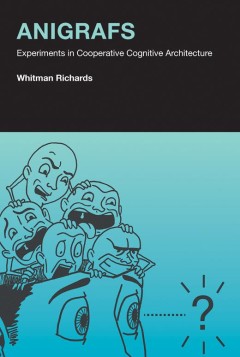
Anigrafs :experiments in cooperative cognitive architecture
"In this book, Whitman Richards offers a novel and provocative proposal for understanding decision making and human behavior. Building on Valentino Braitenberg's famous 'vehicles, ' Richards describes a collection of mental organisms that he calls 'daemons'--virtual correlates of neural modules. Daemons have favored choices and make decisions that control behaviors of the group to which they be…
- Edition
- -
- ISBN/ISSN
- 0262329115
- Collation
- 1 online resource (xiii, 148 pages) :illustrations
- Series Title
- -
- Call Number
- -
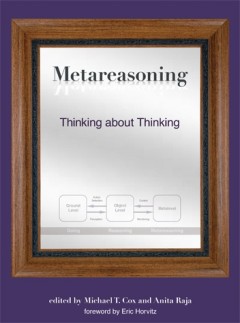
Metareasoning: Thinking about Thinking
This text offers a simple model of reasoning about reason as a framework for its discussions. Following this framework, the contributors consider meta-level control of computational activities, introspective monitoring, distributed meta-reasoning, and, putting all these aspects of meta- reasoning together.OCLC-licensed vendor bibliographic record.
- Edition
- -
- ISBN/ISSN
- 9780262295284
- Collation
- 1 online resource (vi, 340 pages) :illustrations
- Series Title
- -
- Call Number
- -

Do the Right Thing: Studies in Limited Rationality
The authors argue that a new theoretical foundation for artificial intelligence can be constructed in which rationality is a property of "programs" within a finite architecture, and their behavior over time in the task environment, rather than a property of individual decisions.Like Mooki, the hero of Spike Lee's film "Do the Right Thing," artificially intelligent systems have a hard time knowi…
- Edition
- -
- ISBN/ISSN
- 9780262282772
- Collation
- 1 online resource (xx, 200 pages) :illustrations.
- Series Title
- -
- Call Number
- -
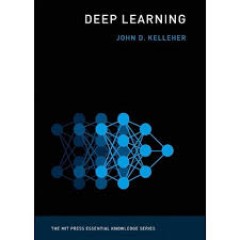
Deep learning
OCLC-licensed vendor bibliographic record.
- Edition
- -
- ISBN/ISSN
- 9780262354899
- Collation
- 1 online resource (272 pages).
- Series Title
- -
- Call Number
- -
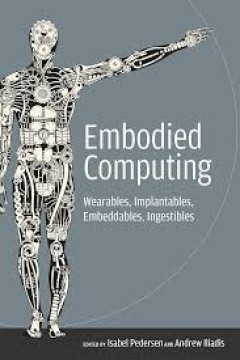
Embodied computing :wearables, implantables, embeddables, ingestibles
"Embodied technologies such as wearable tracking bracelets, ingestible sensors, embeddable prosthetics, and implantable microchips all stand to redefine the human experience and what it means to speak of technology and the body. No longer the speculative stuff of science fiction, embodied technologies have arrived and are being developed by a variety of industries at an alarming rate. Embodied …
- Edition
- -
- ISBN/ISSN
- 0262357798
- Collation
- 1 online resource.
- Series Title
- -
- Call Number
- -

How the body shapes the way we think : a new view of intelligence
"A Bradford book."An exploration of embodied intelligence and its implications points toward a theory of intelligence in general; with case studies of intelligent systems in ubiquitous computing, business and management, human memory, and robotics.OCLC-licensed vendor bibliographic record.
- Edition
- -
- ISBN/ISSN
- 9780262281553
- Collation
- 1 online resource (xxiv, 394 pages) : illustrations
- Series Title
- -
- Call Number
- 001 PFE h
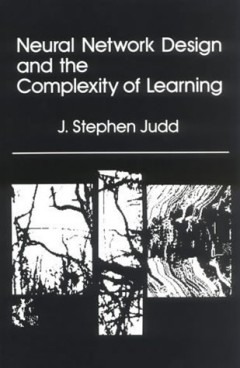
Neural network design and the complexity of learning
"A Bradford book.""Using the tools of complexity theory, Stephen Judd develops a formal description of associative learning in connectionist networks. He rigorously exposes the computational difficulties in training neural networks and explores how certain design principles will or will not make the problems easier. Judd looks beyond the scope of any one particular learning rule, at a level abo…
- Edition
- -
- ISBN/ISSN
- 0585359342
- Collation
- 1 online resource (150 pages) :illustrations.
- Series Title
- -
- Call Number
- -
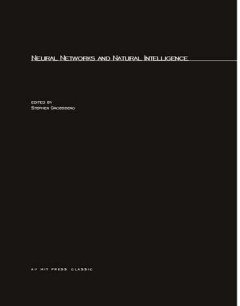
Neural networks and natural intelligence
"A Bradford book."Stephen Grossberg and his colleagues at Boston University's Center for Adaptive Systems are producing some of the most exciting research in the neural network approach to making computers "think." Packed with real-time computer simulations and rigorous demonstrations of these phenomena, this book includes results on vision, speech, cognitive information processing; adaptive pa…
- Edition
- -
- ISBN/ISSN
- 9780262315937
- Collation
- 1 online resource (xi, 637 pages) :illustrations
- Series Title
- -
- Call Number
- -
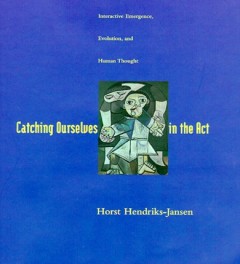
Catching Ourselves in the Act: Situated Activity, Interactive Emergence, Evol…
"A Bradford book."OCLC-licensed vendor bibliographic record. Catching Ourselves in the Act uses situated robotics, ethology, and developmental psychology to erect a new framework for explaining human behavior. Rejecting the cognitive science orthodoxy that formal task-descriptions and their implementation are fundamental to an explanation of mind, Horst Hendriks-Jansen argues for an alternative…
- Edition
- -
- ISBN/ISSN
- 9780262275262
- Collation
- 1 online resource (xii, 367 pages).
- Series Title
- -
- Call Number
- -
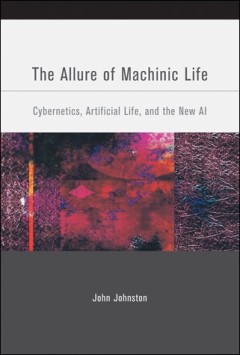
The allure of machinic life Cybernetics, Artificial Life, and the New AI
This account of the creation of new forms of life and intelligence in the sciences of cybernetics, artificial life and artificial intelligence analyses both their similarities and their differences in actualising life. The author draws on the work of scientists as well as work in contemporary philosophy and cultural theory.
- Edition
- -
- ISBN/ISSN
- -
- Collation
- 1 online resource (xiii, 461 pages) : illustrations
- Series Title
- -
- Call Number
- -
 Computer Science, Information & General Works
Computer Science, Information & General Works  Philosophy & Psychology
Philosophy & Psychology  Religion
Religion  Social Sciences
Social Sciences  Language
Language  Pure Science
Pure Science  Applied Sciences
Applied Sciences  Art & Recreation
Art & Recreation  Literature
Literature  History & Geography
History & Geography